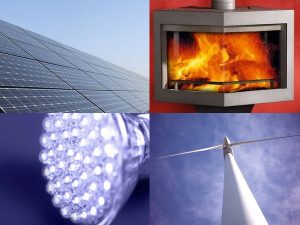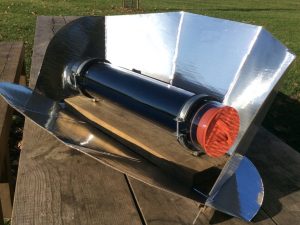Energy saving - introduction

“The cheapest energy is the energy you don’t use in the first place.” – Sheryl Crow
Contents
What is energy saving?
It’s reducing overall energy use, and our individual contributions to that, by reducing consumption, changing behaviours and buying more energy-efficient goods. It’s not about the source of our energy – i.e. renewables vs fossil fuels vs nuclear etc. – it’s about reducing the amount we use.
Many energy-saving sites offer relatively simplistic solutions, but tend to omit the fact that:
-
Global energy use grows relentlessly every year; so whatever we’re doing in terms of energy saving isn’t working overall;
-
Domestic energy figures don’t include the energy required to make our fridges, cookers and other goods, and then transport them from the other side of the world;
-
Making sure your phone charger isn’t left on (because ‘every little helps’) is a good thing to do, sure – but not if you think it’s enough to balance the effects of all the extra gadgetry we’re using nowadays; without looking at the bigger picture, this can breed complacency.

Global fossil fuel consumption is rising relentlessly despite energy efficiency improvements.
But possibly the most important thing to understand is that energy saving measures alone can’t reduce overall energy use, because of…
The Jevons Paradox
In the 19th century, a certain Mr. Jevons noticed that James Watt’s steam engine, which was much more efficient than Newcomen’s engine, and was therefore supposed to save coal, had instead resulted in a massive increase in coal use. He realised that this was because coal became relatively cheaper to use, so people used more of it, and it caused the economy to grow overall, so everyone had more spending power, so they bought more stuff, which required more fuel to produce and transport, and so on.

Mr. Jevons.
This still happens today. For example:
-
Cars become more energy-efficient; it becomes cheaper to drive; cities sprawl; people move to suburbs and drive to work and shops; more roads are built; more car journeys; more fuel used (vehicle-miles in the US doubled between 1980 and 2010).
-
Lighting has become much more efficient, and therefore cheaper; in real terms, lighting was 3000 times more expensive in 1800, so now we use 40,000 times more energy for lighting than in 1800. LEDs represent the latest jump in efficiency, and although we love them, instead of having one bulb in the middle of the room, people tend to have lots of them, all over the place, which means that overall, they won’t reduce the energy required for lighting.
-
Planes have become 4 times more fuel-efficient since 1960, but we’re burning 17 times more jet fuel.
-
In the US, the efficiency of air conditioning is improving all the time, but now more energy is used for air conditioning than was used for everything in 1955!
You get the idea. So what’s actually happening here is that efficiency helps the economy to grow, which results in more energy and materials used overall. Energy saving only works in the context of a stable, non-growing economy.
Energy saving challenge for a group of households on a street in Scotland – they managed to halve their energy consumption.
The Jevons Paradox has been argued against in various ways (that are not convincing), for example:
-
That it’s supported by right-wingers because they’re opposed to energy efficiency (and are sometimes climate change deniers); but what we’re saying is that energy efficiency works in a stable economy, but not a perpetually-growing one, which is certainly not a right-wing perspective!
-
That owners of more energy-efficient cars don’t drive so much more that it uses more fuel than is saved via efficiency. But that’s only taking into consideration the direct (micro) effects. They forget the macro effects – in a growing economy, more materials and energy will be used overall, and this is what’s actually happening, in the real world.
-
That only 6-8% of money savings from energy efficiency is spent on energy, so overall, the effect of energy saving is positive. But they’re missing something crucial – that 1) other things damage nature, not just energy – pesticides, habitat removal etc. 2) the money not spent on energy, even if spent on something benign or resource-light, will still be in circulation after that – to be spent on electricity, or pesticides, or on hiring a car – and so on. It’s not all about just one transaction, it’s about the total amount of money sloshing about in the economy. The more of it, the more economic activity and the more environmental damage.
-
That efficiency measures have helped reduce per capita energy use in Western countries, but as mentioned above, this ignores the fact that manufacturing has been exported. And anyway, nature doesn’t care about your country’s per capita energy use, only about global energy consumption, which is rising relentlessly (along with raw material use), because the global economy keeps getting bigger.

Installing a reflective sheet behind a radiator means that more heat will be reflected back into the room.
In fact none of the technologies or activities on this site will help bring about a sustainable society as long as global GDP is perpetually growing. This isn’t a pessimistic position – just a realistic one. Stabilise the global economy, and then we can begin to see some light at the end of the tunnel. You won’t find mention of the Jevons Paradox on government advice sites of course, as all states are committed to eternal GDP growth.
What are the benefits of energy saving?
So, (bearing in mind that these benefits are not happening, and can only happen in a stable economy), first and foremost, climate change: what this really means is anthropogenic (i.e. caused by humans) global warming. It’s mainly caused by burning fossil fuels that emit carbon dioxide into the atmosphere, which traps heat like a greenhouse and raises global temperatures. Unless we stop doing this (and we’re not), then temperatures will keep increasing so that climatic zones keep moving towards the poles, with horrific consequences for nature and for people living in drought-susceptible countries.

People often negate the benefits of LED lights by installing too many of them.
We have to reduce our energy use overall to prevent this. Although nature itself pumps a lot more carbon into the atmosphere than humans, nature also absorbs as much as it emits, and has done for millions of years. We’ve upset the balance by digging up ancient, stored carbon in fossil fuels and burning it, adding to the concentration of CO2 in the atmosphere every year.
Another benefit is that we won’t need as many power stations / wind farms / factories producing solar panels etc., with all their accompanying roads, carbon emissions, pollution, mines, waste etc. Plus of course, you’ll save money, which means you can work a bit less (which is actually essential if the energy saving measures are going to work, as explained above).

Clothes lines in Iceland and Lebanon. Outside, air-drying of clothes has happened forever, in all parts of the world.
Images: Drw25 and Ankara, CC BY-SA 3.0
What can I do?
Now there’s not much you can do personally to change the government’s position on trying to achieve perpetual economic growth, but you don’t have to contribute to it with your personal consumption. However, you’ll sometimes hear things like: ‘it’s not worth thinking about reducing our energy use, because China’s energy consumption is exploding’. Well, China’s per capita energy use is way lower than the West’s; plus, China is using a lot of that energy to produce stuff for Western markets!
There’s so much energy saving advice out there that we’ll just give you a taster sample here. Many of them are just common sense.
Downshifting / not buying things
Most advice tends to be about reducing your energy bills. So then you’ll have more money to spend on other things. Even if you spend it on something that doesn’t require energy, say a massage (or not very much energy – maybe a room is heated that wouldn’t have been otherwise, maybe you drive to the masseur etc.), then that money is in the economy, and will be used over and over again. This, in microcosm, relates to the Jevons Paradox mentioned above.
Here are some downshifting ideas to reduce consumption; and below are a few ideas on energy-consuming kit that you could maybe do without:
-
Air con: in hot countries, fair enough (although new builds could follow the Middle Eastern practice of central courtyards with a pond, with doors open to the courtyard at ground level, and windows open on the top floor on the outside; cool air is drawn up through the house); in the UK, maybe all we need to do is open windows.
-
Patio heaters (having a real fire sometimes is not the same, as wood is part of the natural carbon cycle, unlike fossil fuels).
-
Tumble dryer.
-
Leaf blower, and maybe even vacuum cleaner (stiff brush does both jobs).
-
Second homes (as we had to explain to someone at an event – loft insulation in a second home in Slovenia does not reduce energy use!).

In the real world, GDP and energy use are inseparable (USDA Economic Research Institute and BP).
Changing behaviour
Most of the topics on this site reduce energy use. For example, a compost toilet removes the need for the pumping of water to flush waste away; cob building removes the need for the energy to produce bricks and cement; growing veg in the garden doesn’t require energy to transport veg to the shops; and so on. Here are a few energy-related ideas:
-
OK, OK, don’t leave appliances on standby, and do turn off your phone charger. There – we said it.
-
Change bedtimes and getting-up times to correspond more to daylight.
- Don’t overfill kettles – just boil enough water for the cups you’re filling.
-
Turn down thermostats and wear a fleece instead of rushing to turn the heating up.
-
Don’t let your fridge go below 3°C, or the freezer below -16(ish).
-
Here are some ideas related to transport.

A saucepan with a lid on will require a lot less energy for cooking. You can save more energy by using retained heat techniques, slow cookers, or eating more raw food.
Purchases
Then it’s down to things we can buy (but only if we really have to buy them):
-
A-rated appliances.
-
Increase the thickness of your loft insulation from 50 to 250mm and you’ll save as much energy as you would by installing a solar hot water system.
See here for many more energy-saving ideas. And finally, if this stuff fascinates you, maybe a career as a domestic energy assessor is for you.







